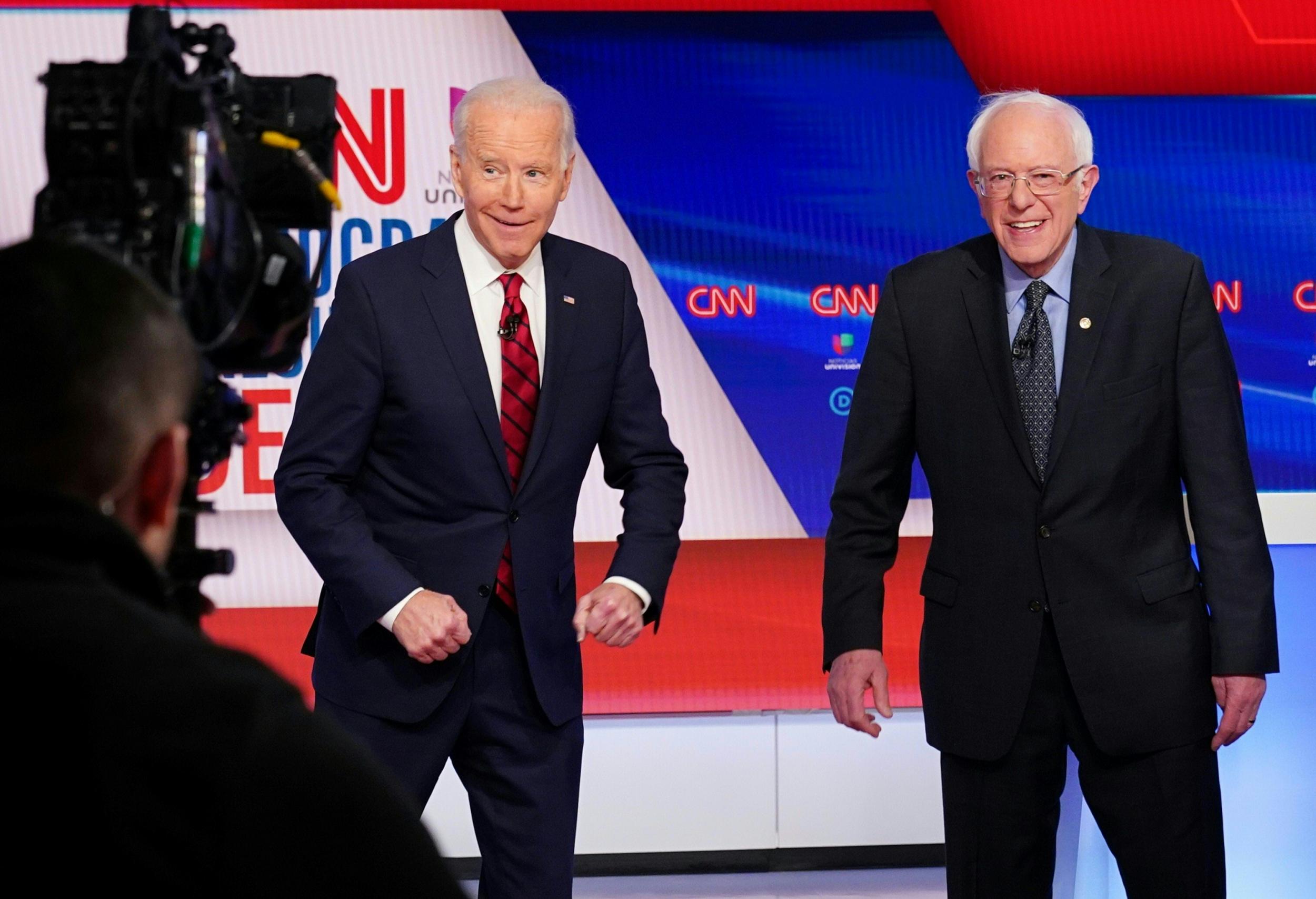Joe Biden is now stealing from Sanders and Warren's policies. But his college plan reveals how naive he is
One of the biggest disproportions of powers in our culture is that between parents and children


Your support helps us to tell the story
From reproductive rights to climate change to Big Tech, The Independent is on the ground when the story is developing. Whether it's investigating the financials of Elon Musk's pro-Trump PAC or producing our latest documentary, 'The A Word', which shines a light on the American women fighting for reproductive rights, we know how important it is to parse out the facts from the messaging.
At such a critical moment in US history, we need reporters on the ground. Your donation allows us to keep sending journalists to speak to both sides of the story.
The Independent is trusted by Americans across the entire political spectrum. And unlike many other quality news outlets, we choose not to lock Americans out of our reporting and analysis with paywalls. We believe quality journalism should be available to everyone, paid for by those who can afford it.
Your support makes all the difference.As he moves towards clinching the Democratic nomination, Joe Biden is trying to woo progressive voters by adopting the policies of former rivals Bernie Sanders and Elizabeth Warren. Biden pledged to work to enact Elizabeth Warren's bankruptcy reforms into law. And, like a policy proposed by Sanders in 2017 legislation, he said he would make college tuition at public universities free for students with family income under $125,000.
As a presidential candidate, however, Sanders went further, arguing that college should be free for all students. Biden's plan is a compromise. It's meant to benefit the less well-off, while making sure that government resources don't go to rich kids.
There's only one problem. Even wealthy kids aren't actually wealthy. Young people for the most part don't have money of their own. College should be free to all, regardless of income. And with few exceptions, young people have little ability on their own account to pay tuition.
Obviously, as a general rule, young people from wealthy families have many more privileges and opportunities than young people from poorer families. At Harvard, students from wealthy families outnumber students from poor families 23 to 1. Just 3 per cent of students come from the bottom fifth of the population by income, according to a 2017 report. At all colleges, low-income, first generation students struggle to graduate compared to their wealthier peers. There is no doubt that kids from low-income families need more resources to help them achieve equitable outcomes.
But means-testing tuition is a terrible way to redistribute those resources, primarily because kids aren't the ones with the means that are being tested. If kids have a good relationship with their affluent parents, then there's no problem with tuition payments. If they don't have a good relationship, though, tuition becomes a bludgeon with which parents can beat their kids into submission.
Parents can refuse to pay tuition for a range of reasons. They may disagree with their child's choice of school, or with their child's choice of major. Matt Gabriele, head of the Department of Religion and Culture at Virginia Tech, told me he'd had a student who was kicked out of their house and disowned when they tried to major in religion.
It's also distressingly common for families to disown their children if they come out as LGBT or queer. Young people who want to be honest about their sexuality may be kicked out of their homes, and are often on their own when it comes to paying for college. Some exceptional students, like high school valedictorian Seth Owens, are able to crowdfund money to make up some of the deficit. But many other queer kids have few ways to raise resources, and simply have to put off college or scramble for funds to attend cheaper community schools.
In theory, students who are getting no resources from their families should be able to get financial aid. In practice, schools are very reluctant to grant students waivers allowing them to be considered independent for purposes of aid. The presumption is that parents should be responsible, and that if they refuse to pay they're just trying to get out of their obligations. Which is certainly true, but doesn't much help the young person whose parents won't pay for their college education.
Biden, like college admissions officers, assumes that parents will do the right thing. His plan requires kids to pay tuition at public institutions if their family has a certain amount of money. But if the family refuses to pay, what happens to the kids? An affluent family can impoverish their child instantly, simply by refusing to support them.
As a society, we are reluctant to recognize how disempowered and stigmatized young people are. It's easy to sneer at spoiled rich kids, or to insult milennials, as Biden has done. "The younger generation now tells me how tough things are. Give me a break. No, no, I have no empathy for it," he infamously said during the campaign.
The truth, though, is that young people do have it tough, especially when it comes to college tuition rates. Public school tuition rose on average 29 per cent between 2008 and 2015; in California it went up 62 per cent, and in Florida 64 per cent. States have tried to balance budgets by defunding higher education. The result is that it's increasingly impossible for young people to pay for their education themselves. In 2019, tuition at public schools averaged $10,230 a year; with fees and room and board the total cost was around $21,370 a year. The days when you could get a part-time job and put yourself through school are largely gone. Young people rely on their parents — and if their parents aren't willing to pay, they are screwed.
Sanders' free college plan wasn't just a way to help poor families. It was a way to help young people in abusive situations access the resources they need to emancipate themselves. One of the biggest disproportions of powers in our culture is that between parents and children. Rising tuition has helped extend that power imbalance into the late teens or early twenties for many. Free college would empower young people to get an education without having to worry about whether parents approve of their majors, or their sexuality, or their personal choices.
Of course, making college free for people from low-income families is better than making college free for no one. I appreciate that Biden is moving in the right direction. But we need to recognize that the people paying for college are not the people attending college, and that this creates perverse incentives and terribly oppressive and unjust situations.
Tax the affluent to pay for better schools, by all means. But don't punish young people because their parents are irresponsible, or cruel, or controlling. Sanders was correct when he said public schools should be free to all. Biden's half measures aren't enough.
Join our commenting forum
Join thought-provoking conversations, follow other Independent readers and see their replies
Comments